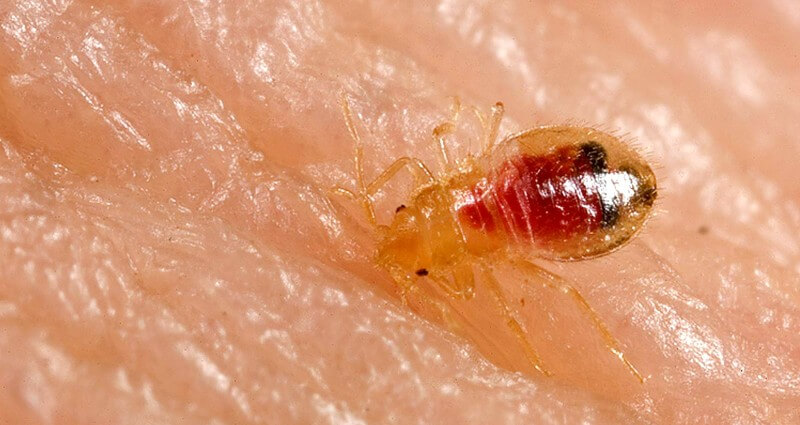Trusted Kings Pest Control Cincinnati OH: Professional Services
Trusted Kings Pest Control Cincinnati OH: Professional Services
Blog Article
Kinds Of Insect Control: Which Method Is Right for Your Problem?
When confronted with an insect infestation, the choice of a suitable technique for pest control is essential in successfully handling the situation. From chemical treatments to organic solutions, there exists an array of methods that can be used to address various kinds of bugs. Each method comes with its own set of benefits and factors to consider, making the decision-making process a nuanced one. Understanding the subtleties of each technique and evaluating their compatibility with the details bug invasion handy is crucial for achieving long-lasting success in insect monitoring. By discovering the different kinds of insect control techniques readily available, people can make enlightened decisions tailored to their one-of-a-kind conditions, ensuring a more lasting and efficient result in insect eradication.
Chemical Pest Control
Chemical pest control involves making use of artificial or naturally derived chemicals to take care of and get rid of pest populaces successfully. This approach is frequently used in agriculture, forestry, and domestic settings to battle a wide variety of bugs, consisting of pests, weeds, and rats. Using chemical pesticides can give fast and targeted options to pest infestations, making it a popular selection for lots of people and companies.
Among the vital benefits of chemical parasite control is its capability to swiftly eliminate parasites, reducing the danger of damages to crops, building, and human wellness. By making use of details chemicals that target specific insects, this approach can properly regulate invasions while reducing harm to beneficial microorganisms and the atmosphere when applied appropriately.
Nevertheless, the use of chemical pest control also raises concerns concerning prospective unfavorable results on non-target types, water sources, and human health. It is crucial to adhere to safety standards, apply chemicals sensibly, and think about alternative parasite control techniques to decrease these dangers and ensure sustainable insect management practices.
Biological Pest Control
Organic parasite control, also understood as biocontrol, uses living microorganisms to lower and take care of pest populations naturally. By using the pest's natural predators or microorganisms, organic pest control offers a lasting and eco pleasant remedy to pest monitoring.

Mechanical Bug Control
Using manual and physical methods to handle pest populaces, mechanical pest control uses an alternative technique that does not rely upon using living organisms or artificial chemicals. This approach includes making use of obstacles, traps, or other tools to physically prevent or eliminate parasites. By blocking parasite entry points or establishing up traps to catch them, mechanical bug control can efficiently lower infestations without introducing chemicals right into the setting.
One usual instance of mechanical insect control is using mesh screens on doors and windows to avoid bugs from entering buildings. This basic Resources yet reliable method functions as a physical obstacle, maintaining bugs out while permitting proper ventilation. In addition, tools like mousetraps, fly swatters, and ultrasonic repellents fall under the mechanical parasite control classification.
While mechanical parasite control approaches can be labor-intensive and call for regular monitoring and upkeep, they supply a ecologically friendly and sustainable solution for handling insect infestations. By integrating various mechanical techniques, residential or commercial property owners can produce an extensive bug control method that lessens dependence on chemical pesticides.
Physical Insect Control

Some typical physical insect control approaches include making use of obstacles such as screens or webs to avoid bug access, traps to catch and remove insects, and hand-picking to physically get rid of insects from plants or frameworks. Additionally, methods like warmth treatments can be utilized to manage pests like bed insects by elevating the temperature to levels that are deadly to the pests.
Physical parasite control is specifically beneficial in incorporated pest administration (IPM) methods, where numerous pest control approaches are integrated for effective insect administration while decreasing making use of chemicals. By utilizing physical parasite control techniques, individuals can properly resolve pest infestations with very little ecological influence.
Integrated Parasite Management
When executing physical insect control techniques as part of bug monitoring strategies, Integrated Pest Management (IPM) becomes an extensive method that leverages different methods to successfully regulate pest populaces. IPM concentrates on long-lasting prevention of insects through a combination of organic, social, physical, and chemical devices tailored to certain insect problems. By incorporating multiple control tactics, IPM aims to lessen the risks related to parasites while likewise minimizing reliance on chemical More Bonuses services.
One secret aspect of IPM is the focus on tracking and evaluating pest populaces to identify the most ideal control approaches. This proactive method permits early treatment and targeted techniques, resulting in extra reliable parasite administration. Additionally, IPM advertises eco-friendly practices by prioritizing More about the author non-chemical control approaches and just using chemicals as a last hotel.
Verdict

By utilizing the parasite's all-natural killers or microorganisms, organic bug control uses a sustainable and ecologically pleasant service to pest management. - Kings best pest control cincinnati
Using physical and hands-on methods to handle pest populations, mechanical insect control offers a different method that does not count on the usage of living microorganisms or artificial chemicals.An efficient method to taking care of parasite populaces without counting on chemical or biological techniques includes the usage of physical pest control techniques.When applying physical parasite control methods as part of parasite monitoring methods, Integrated Parasite Management (IPM) emerges as a comprehensive technique that leverages different strategies to properly regulate pest populations. Chemical insect control entails the use of pesticides, organic insect control uses natural predators, mechanical pest control includes physical obstacles, physical parasite control includes trapping or eliminating parasites, and integrated pest monitoring integrates multiple techniques for an all natural method to pest control.
Report this page